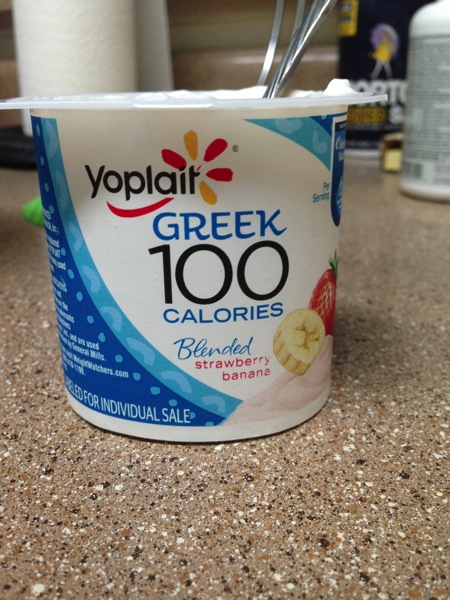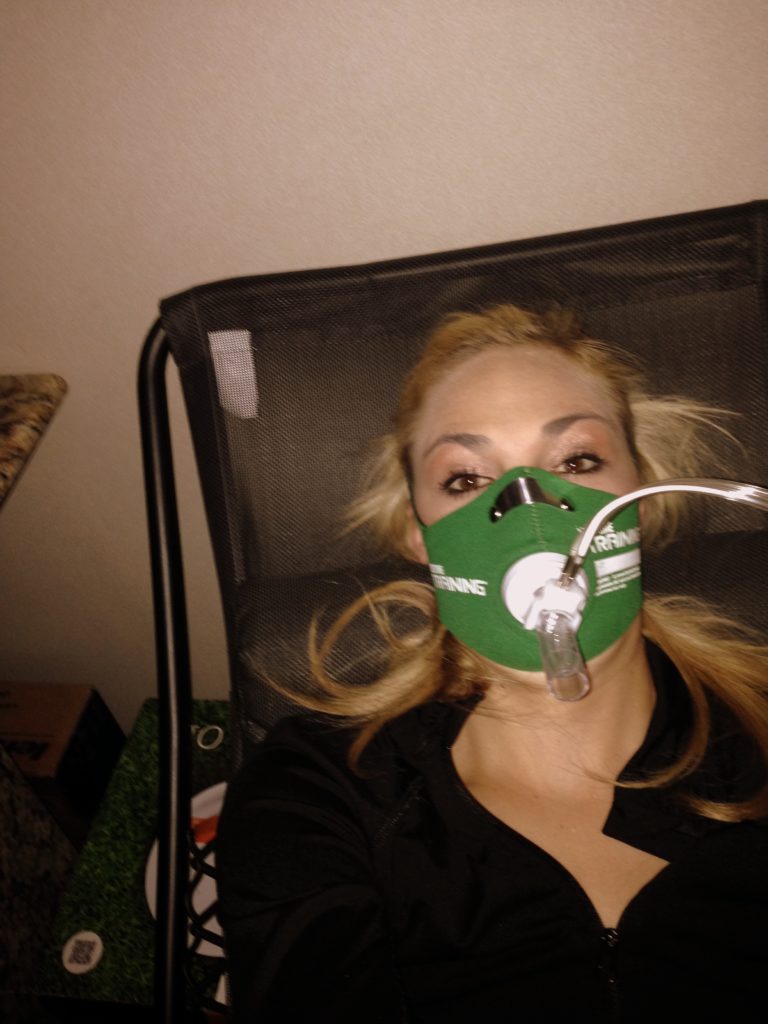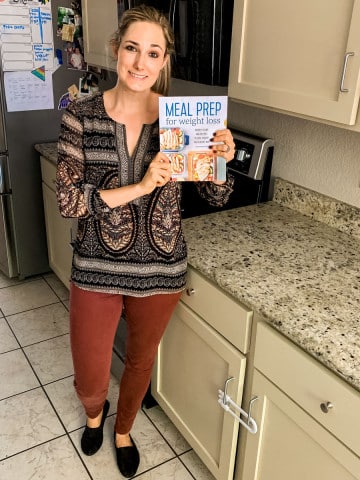
Today's post is a topic I've wanted to write about for quite a while. I've written several times about the pros and cons of calorie counting, but I've never addressed or shared my thoughts regarding the real problem with the practice of calorie counting. Most of you have noticed that I still include calorie and nutrition facts on most of my recipes. That is because it's good to have an idea of how that meal fits into your day and what macronutrients (carbs, fats or protein) it supplies. I know that many of you are working on developing healthy habits, but also utilize the information in a positive way.
The real problem is the ridiculously low number promoted by calorie counting websites and phone apps.
[Tweet "1200 calories is not the right number, find out why on @hungryhobby #nutrition #weightloss #health #truth"]
Let me start at the beginning. As a college Junior, I had gained 25 pounds but hadn't lost any of my confidence until one day, I saw myself on TV. Mr. Hungry and I got to sit court-side at a Wildcats basketball game and we were caught on the kiss cam. When we came home, Mr. Hungry had recorded it and brought it up on the TV for us to relive. I took one look at myself and realized I was not okay with the weight I had gained. The next morning, my bathroom scale quietly acknowledged my realization. Now, what? I knew a very petite friend of mine "counted her calories" but that seemed time-consuming. So I searched for an online calorie counter, of course, to my delight there were hundreds of options.
Like most people who sign up for an online calorie counter, I filled out the current and goal profiles. When it said,"by when would you like to accomplish your goal?" I put the soonest date it would allow without causing an error screen. Then it spit out a calorie number that would help me achieve that goal: 1200 per day.
Let me stop right there and say that since I had never counted calories before, that number had zero meaning to me. I blindly began down a path that would produce quick results with long lasting consequences.
It's All About BMR
Your BMR is your basal metabolic rate or the energy you utilize to stay alive. It does not include movement or activity level, it is a number of calories your body requires to continue to support bodily functions such as breathing, heart beating, etc. There are a number of things that affect a person's BMR including:
- Body size
- Body composition - muscle requires more energy to maintain than fat
- Gender - men burn more, usually related to muscle mass
- Age - BMR decreases 0-3% on average for every decade
- Climate and body temperature - takes energy to keep the body cool in extreme heat and energy to keep the body warm in extreme cold.
- Hormonal levels: Thyroid hormones, sex hormones, and adrenal hormones all play a role in determining your BMR
- Health: severe fever, illness, and burns can increase the basal metabolic rate
If you search for a BMR calculator you will get hundreds of different of options to utilize. I recently did this and as I suspected my results varied wildly from website to website:
- Website 1: 1,399
- Website 2: 1501
- Website 3: 1338
This is likely because these sites are using different formulas such as Mifflin St. Jeor, Harris-Benedict or the Hamwi Method to estimate calories levels. One thing they share in common? None of them say 1200 or less. So what happens when a person eats less than their bodies natural basal metabolic rate? Initially, you lose weight. However, the body is a complex and highly efficient organism. After a prolonged period, it will begin to adjust, it will become more efficient on fewer calories. What we don't know is how long the period is until the body starts to readjust. We also don't know if the effects are permanent. A recent and now famous study of biggest loser contestants found their BMR's to be 200-500 calories lower than expected for someone of their size 6 years after the competition had ended. NY times article and original study.
There are several other, potentially more accurate ways to check your BMR which may be very helpful to you if you suspect your metabolism has slowed. When I worked at Life Time we had a bioelectrical impedance analyzer (BIA) that estimated BMR based off of height, weight, age, and lean body mass. Finding access to a BIA or even a bod pod can be challenging, but worth it for the information. However, this is again, just an estimate based on what someone with that body composition should be burning, not what you are actually burning.
For information specific to you, you may want to get a direct measurement using indirect calorimetry. In the picture above, that is the testing I'm doing, at Life Time this is available as a Resting Metabolic Assessment. I thought that my BMR was right on par where it was supposed to be when I initially looked at the results. However, when we reanalyzed the data (accounting for standard deviation and removing inconsistent data points), I actually found out my number was closer to 1200. I was too disheartened to ever update that post. However, it did not surprise me, my body has adjusted 200 calories lower than what it should be, do to my history of calorie deprivation. Given all my recent work at gaining muscle and eating enough, I'm curious to know if that number has improved, my guess is that it has.
Figuring out Total Daily Expenditure
Average It
If you don't have access to direct testing measurement, I would simply take an average of your BMR using the three methods listed above.
In my example: (1399+ 1501+ 1338)/3 = 1401
That is the number you absolutely DO NOT want to eat under, EVER, EVER, EVER, EVER, EVER, EVER, EVER. Got it?
Multiply By An Activity Factor
Now you can find your total daily expenditure by multiplying that number by an activity factor. Unless you are an athlete (you work out more than 10 hours per week), you would probably want to use 1.2. I use this number for almost all my Hungry Hobby RD clients, I then adjust later for athletes and others who need adjustment.
1401 x 1.2 = 1,681
Add Exercise
Finally, you will add exercise to your number which is typically somewhere between 200-500 calories per day for me.
1681 + 200 = 1881
1681+ 500 = 2181
So, I could reasonably consume 1800-2200 calories per day to MAINTAIN my weight. If I wanted to lose weight, I need to be eating under 1800-2100 calories per day, but not below my BMR of 1401.
The Slower The Better
Research shows that the slower the weight loss the more sustainable. I'm sure you've heard that before, but it is still hard to believe. When we decide we want to lose weight, we want it to come off IMMEDIATELY. In reality, it should take you about the same amount of time to take it off as it took you to put it on. That isn't what the multi-billion dollar diet industry wants you to know, or think, but it is the truth. It isn't sexy or alluring to tell someone that it should take them 6 months to lose 20 pounds, but it's the truth. The reason why diets don't work is because they damage your metabolism and don't fit your individual needs.
Please, be careful of how low you set your calorie counter, or if your a person that frequently skips meals, start counting to make sure you are eating enough calories, protein, fat, and carbs. Seek out help if you need it so that you can be successful long term.
If you suspect you are dealing with a damaged metabolism or aren't sure where to go from here, please feel free to check out my Nutrition Services website for one on one counseling. I also highly recommend my healthy habits series and health/motivation tips page which will help highlight the weekly habits most important to a lifestyle change which will promote weight loss/weight maintenance.
Looking for more weight loss info? Check out these posts I've writeen over the years regarding weight loss.
- What Is The Best Weight Loss Program
- What Living in Moderation Really Means
- The 80/20 Rule- Feeding Your Body and Your Soul
- Dealing With Stress Eating
- Intuitive Eating
- Retraining Your Brain
- Being Flexible with Meals and Workouts
- Thoughts on Weighing In
- Calorie Counting Journey Part 1: Weight Loss
- Calorie Counting Journey Part 2: Signs It’s Working Against You
- Calorie Counting Journey Part 3: How I Stopped Counting & Started Living
- Calorie Counting Pros & Cons
- 5 Easy Weight Loss (or Maintenance) Tips —> life after calorie counting
- Skipping the “Lite” Menu
- How to Practice Portion Control Without Counting or Measuring
- Tightening Up Your Diet Without Dieting
- Are you a Moderator or Abstainer?
- Willpower: An Unlimited versus Finite Resource?
- Tips to Eat More Veggies!
Linking up with Running With Spoons for Thinking Out Loud.







Megan @ Skinny Fitalicious says
Such an important message! Calorie counting in my mind is more about training yourself to eat better foods and the right portions but unfortunately many don't understand it beyond the number. I have a similar post I've been drafting!
Brynn at The Domestic Dietitian says
What a great post! I often have clients ask on their first visit how many calories they should be eating a day and I love that you also say to use that information as a guide to how it fits into your day.
Well written!
Kelli Shallal MPH RD says
Thanks Brynn! I really appreciate it!
Cayanne Marcus @healthyezsweet says
Couldn't agree more..1200 is NEVER enough. And this part just stopped me in my tracks "quick results with long lasting consequences" it's a sad reality for so many people
Kelli Shallal MPH RD says
Yes and results motivate you so think that's normal! I work a lot with my clients on restoring the metabolism !
Cassandrea @ Chews and Brews says
Great post!!! I wish more people would listen to RDs! (Full disclosure: I do work with RDs so I might be biased and think everything an RD says is the only truth... because really, it is!!)
I have so many family and friends that cannot get on board with the thought of eating more than 1200 cals. Some even restrict to 800! Yikes!! Loved this post!
Emily says
Love this so much. Thank you all my dietitian friends for debunking myths right and left!
Kelli Shallal MPH RD says
Ha ha thanks Emily!!!!
Kelli Shallal MPH RD says
Your welcome!!!!
Brittany Poulson says
Great post with so much great info! I agree! Slow and steady weight loss is the best way to go!
Kelli Shallal MPH RD says
Thanks Brittany!
Susie @ SuzLyfe says
No lie, I had this EXACT SAME conversation with 3 different people (clients) over the past 2 weeks. 1200 is where you start if you slept all day. I made the mistake of doing the 1200 a day once because I didn't know better, and it just led to me having even less of a clue and then spending my day crashing from too few calories. It is just a miserable and unsustainable place to be.
Kelli Shallal MPH RD says
Yes! I use to have 2pm crashes wish I thought were normal turns out it was from eating 600 calories for beak fast and lunch! I didn't know any better either I just thought that's how people lost weight
dixya @food, pleasure, and health says
thank you for explaining this whole 1200 calories in such simple terms!!! gots to share 🙂
Kaitlyn LeBrun says
Great post! I've tried the calorie counting thing and I ended up becoming way too obsessive and I could never enjoy what I was eating. Not only does calorie counting destroy your metabolism, but it can make it very difficult to get all the nutrients your body needs with less than 1200 calories.
Kelli Shallal MPH RD says
100% agree, if people are calorie counting that low (which of course I don't think they should) they need to be taking a really high quality multivitamin and fish oil at the VERY least because there is no way they are getting in enough nutrients!
Chau says
This article is a new experience for me! Slow but steady. I really like this blog and the information contained herein. Thanks for sharing.